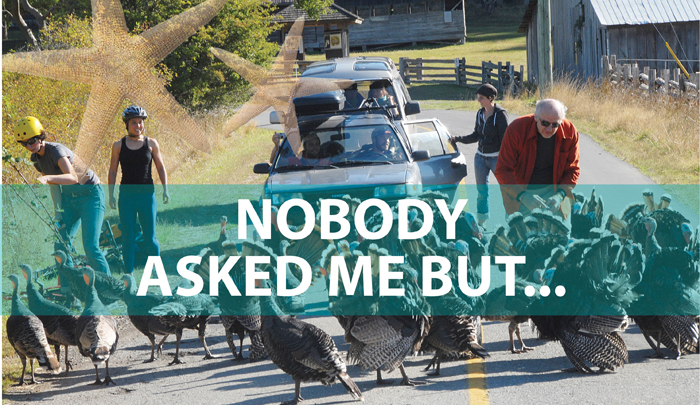Now that we’ve crossed the frontier line and ventured fearlessly into the year 2024, it’s time to take a step back to announce the official “Word of the Year” for 2023. You probably didn’t even realize that such an award even existed, did you? Well, not only is it real but there’s actually a competition among respected literary bodies that choose the winner.
In one corner stands dictionary publisher, Merriam-Webster, which selects its candidate by its popularity, based on the number of times people look up the word. The competition comes from Oxford University Press, which employs a public vote. Oxford first publishes a list of eight words from which the public chooses the top four finalists. The winner is then picked from these final four by a panel of expert etymologists.
The Word of the Year as chosen by Oxford is “rizz.” It originates from the sound of the middle syllable of “charisma” (as in ka-rizz-ma), and describes someone or something that has real style or charm. In street slang, it can mean the ability to attract a sexual partner. Saying that someone has real rizz, however, can be misconstrued to mean that their hair resembles an Italian rice and Parmesan dish.
The winner, as selected by Merriam-Webster, is “authentic,” which means real or actual and not fake or an imitation. On a more cosmic level, it can convey a sense of being true to one’s personality or spirit.
Although Oxford and Merriam-Webster lead the literate field in popularizing words and expressions, they are by no means the only players in the game. For instance, The American Dialect Society, perhaps in a mocking mood, offered its support for the word “enshitification” to describe the deterioration of online platforms.
Coming at the subject from the opposite side is Lake Superior State University, which publishes an annual Banished list for words and expressions that are so imprecise, overused, trite and meaningless that they deserve to be kicked out of the English language. “Gaslighting,” which means dangerous psychological manipulation and was chosen by Merriam-Webster as word of the year as recently as 2022, is first in line for banishment. Similarly, “quiet quitting,” which describes an employee who performs the bare minimum on the job, is an expression that is ready for early retirement.
Among some other words that are lining up for banishment, you will find the acronym G.O.A.T. which stands for Greatest of All Time. G.O.A.T. has been so overused that it can basically be called on to describe everything from athletes and politicians to chicken wings and guacamole. “Irregardless” is another candidate for expulsion, especially since nobody actually knows whether or not it means the same thing as “regardless.” For the same reason, say adios to both “inflammable” and “flammable” as both terms are confused with each other and it’s a mystery as to which one means you are likely to burn your fingers off.
Language has always been amorphous and fluid, so it should come as no surprise that new words come bursting onto the scene while others line up to catch the last stagecoach out of town. In my youth, words such as “groovy,” “cool” and “outtasight” were mainstays of conversation, although cool is still cool to use. You would be hard-pressed, however, to say you “grok” somebody and have anybody “dig” what you mean. Even Oxford’s winning word, “rizz,” is already being dismissed as being passe. Other terms on their way out are “absolutely,” “amazing,” “totally,” and “moving forward,” and there will be no tears shed by me when they are gone for good.
Moving in to take the place of these oldies are delightful specimens such as “tush push,” a football play where the quarterback gets his butt pushed by players behind him in order to advance the ball far enough to gain a first down. Another newbie is “Barbenheimer,” a term that combines the titles of two movies, Barbie and Oppenheimer, which were both released on the same day and found fantastic commercial success even though they dealt with subjects that were polar opposites.
Other words popping up on the horizon include “Swifties,” defined as passionate fans of pop singer, Taylor Swift, and “situationship,” which is used to describe an informal romantic or sexual relationship (presumably with someone who oozes tons of “rizz”).
I have my own informal list of words and expressions that I wouldn’t mind never having to hear or read again. Who is going to miss “it is what it is?” Will anybody feel deep sorrow when “at this point in time” is replaced by the much simpler “now?” How about “at the end of the day” disappearing behind the sunset and being replaced by “finally?”
Include in this list all the terms that derive from technical and business jargon. How long do you suppose you can get into a meeting or conference before someone suggests a “deep dive” before making a “pivot” so you can “circle back” to “move the needle” and get “boots on the ground” in order to “think outside the box?”
Probably my least favourite candidates for Word of the Year are the ubiquitous LOL and the supertext “ha ha” (followed closely by the equally irritating “ha ha ha”). How can any of these compete with the inaugural winner in 1990? The word was “bushlips” and it was inspired by George H.W. Bush, who was quoted as saying “read my lips, no new taxes” just before he went ahead and raised taxes.
Nobody asked me, but maybe it’s time we simplified the English language. It was not that long ago when most male teens needed only two adjectives to get by. If something was good, then it was “awesome.” If it was bad, it was “annoying.” There was no need to think outside the box back then. Besides, regardless or irregardless of whether you were inside or outside of it, the box was annoying.

